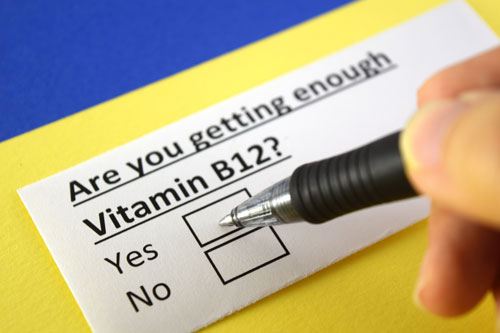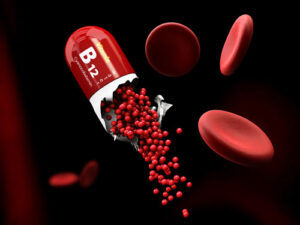B12 deficiency is common, especially in the elderly, as with age it becomes difficult for the body to absorb this vitamin, explains Dr. Suresh Agrawal
Vitamin B12 also known as Methylcobalamin. An essential vitamin for brain, nerves and production of red blood cells. Methylcobalamin is solely synthesised by microorganisms present in human as well as animal gut. Most people will get enough of this vitamin naturally through their food if they eat a well-balanced diet.
People with higher risk of B12 deficiency include seniors, strict vegans, diabetics, or people who have had surgery to remove parts of their bowel. It is observed that those who are too fastidious about hygiene, or prolonged users of acid-reducing medicines such as Ranitidine, Omeprazole, Rabeprazole and Pantaprazole, or heavy consumers of alcohol, are more likely to get Vitamin B12 deficiency. B12 deficiency can also be caused by not eating enough of these foods or if your body is unable to absorb it from the food you eat.

Vitamin B12 is naturally found in liver, yeast, fermented foods, spinach, green vegetables and nuts, but most of it is destroyed by heating. However, it can also be found in meat, dairy and eggs, and in some breads and plant-based milk that have been fortified with B12.
Signs you are low on B12:
Pale skin – Your body requires B12 to produce red blood cells. Without B12 red blood cells become fragile – they cannot leave the bone marrow where they are produced to circulate the blood. This lack of red blood cells make the skin to appear pale.
Feeling weak and fatigued – When your body can’t produce enough healthy blood cells to carry oxygen around your body, you feel weak and fatigued.
Pins-and-needles sensation – Myelin is a fatty substance that surrounds your nerves, protecting and insulating them. Vitamin B12 is essential for its production, so without it the nerves and nervous system struggle to function properly. This may result in the feeling of pins and needles – though it is rarely associated with B12 deficiency alone.

Decline in balance and mobility – If damage to the nervous system is allowed to progress, you may experience changes in your coordination, balance and movement.
Shortness of Breath – This occurs when the body is unable to transport enough oxygen to all its cells.
Smooth tongue – Glossitis, the inflammation of the tongue, can cause it to change colour, feel painful and swell, stretching out your taste buds and making them feel smooth. This can be an early symptom of vitamin B12 deficiency.
Change in vision – If vitamin B12 deficiency causes damage to the optic nerve, it may result in blurry or impaired vision. This is known as optic neuropathy.
Depression – Low levels of vitamin B12 have been linked to mood changes, including depression and a decline in brain function. Fortunately, the use of supplements may help reverse damage in some patients.




I am 59 yrs my daughter 32 yrs but both are at minimum level B12 and suffering. What should we do…. Thanks
If person having B 12 deficiency what should he should eat to cover it an only vegetarian food
Dashrath Panchal
I have seviour gas trouble with acidity can this be with deficiency of B12?
I am taking clopitab and Dijham cD 90
Pls gauide me . I had blockage in arteries last. August
Know the benefits of B12, apart from that use of B12 as Becasule cap.help me to recover from common cold and cough . Why it is not used in covid19 treatment.
Comments are closed.